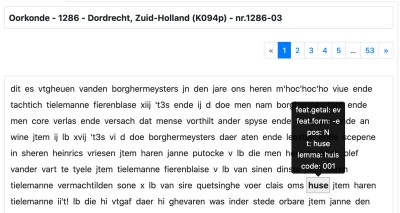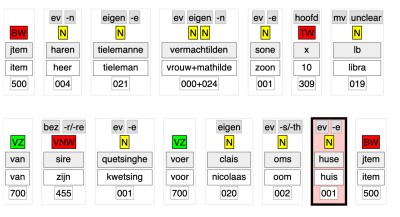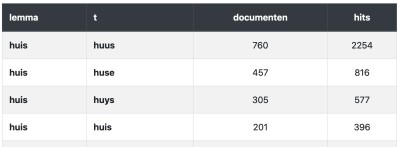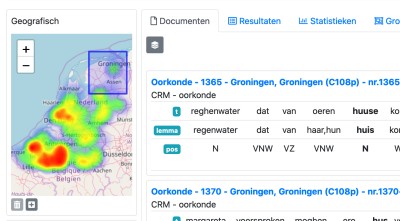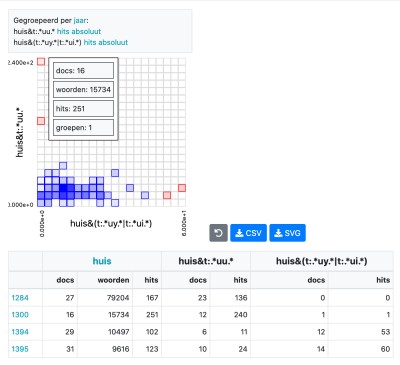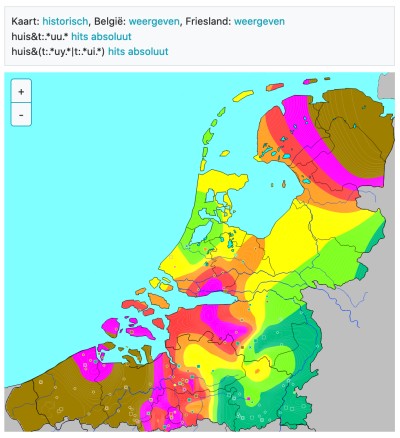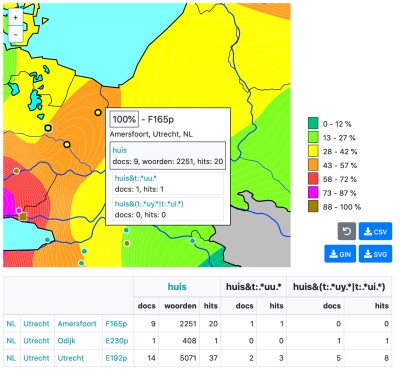See textexploration.github.io/mtas/ for more documentation and instructions.
A docker image providing a Solr based demonstration scenario with indexing and querying of some sample documents is available. To pull and run
docker pull textexploration/mtas
docker run -t -i -p 8080:80 --name mtas textexploration/mtasOr to build and run
docker build -t mtas https://raw.githubusercontent.com/textexploration/mtas/master/docker/Dockerfile
docker run -t -i -p 8080:80 --name mtas mtasThis will provide a website on port 8080 on the ip of your docker host with more information.
This project builds upon the latest commit from April 30, 2018 for meertensinstituut/mtas. See also the related broker project, another continuation of previous work.
One of the primary use cases for Mtas, the Nederlab project, currently1 provides access, both in terms of metadata and annotated text, to over 74 million items for search and analysis as specified below.
| Total | Mean | Min | Max | |
|---|---|---|---|---|
| Solr index size | 2,715 G | 60.3 G | 75 k | 288 G |
| Solr documents | 74,762,559 | 1,661,390 | 119 | 11,912,415 |
Collections are added and updated regularly by adding new cores, replacing cores and/or merging new cores with existing ones. Currently, the data is divided over 44 separate cores. For 41,437,881 of these documents, annotated text varying in size from 1 to over 3.5 million words is included:
| Total | Mean | Min | Max | |
|---|---|---|---|---|
| Words | 18,494,454,357 | 446 | 1 | 3,537,883 |
| Annotations | 95,921,919,849 | 2,314 | 4 | 23,589,831 |
Mtas is also used on Middelnederlands.nl, including geographical selections and new analysis options.2
Keyword in context
Group results
Geographic conditions
Correlation analysis
Geographical analysis
1 situation June 2018
2 release April 2020

